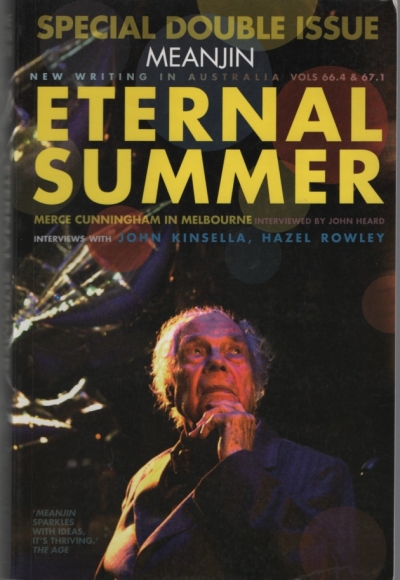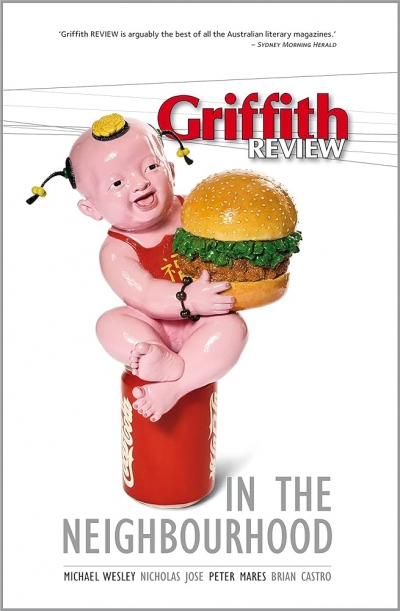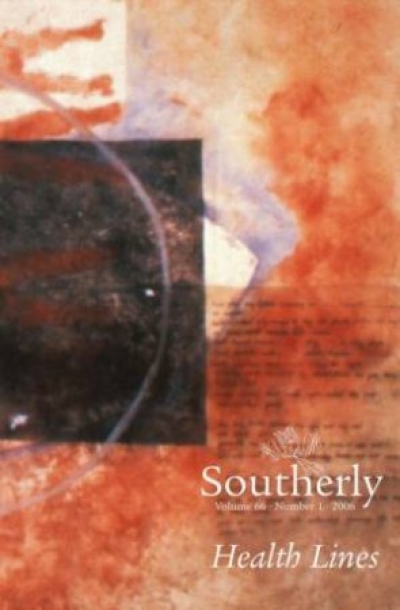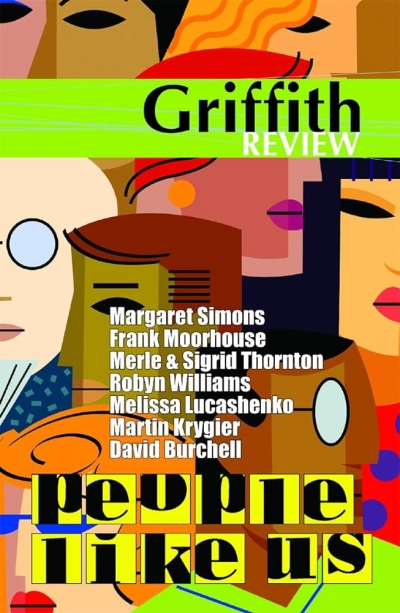Griffith Review
Meanjin, Vol. 66, No. 4 & Vol. 67, No. 1 edited by Ian Britain & Griffith Review 20 edited by Julianne Schultz
by Lyn McCredden •
Griffith Review 18 edited by Julianne Schultz & JASAL 2007 Special Edition edited by Tanya Dalziell and Paul Genoni
by Georgie Arnott •
Meanjin vol. 66, no. 2 edited by Ian Britain & Griffith Review 17 edited by Julianne Schultz
by Lyn McCredden •
Southerly edited by David Brooks and Noel Rowe & Griffith Review 13 edited by Julianne Schultz (with Marni Cordell)
by Kate McFadyen •
‘The best preserve of our humanity’, Ian Britain writes in his editorial to this edition of Meanjin (Only Human, 63:1, edited by Ian Britain $19.95 pb, 236 pp), remains words. Whatever ‘our humanity’ is, it is protected, kept alive, maintained, conserved – in language. ‘[C]ertainly’, he clarifies, in the ‘honed, considered words of the good … literary artist’, but perhaps even in ‘verbiage’.
... (read more)Griffith Review 8 edited by Julianne Schultz & Heat 9 edited by Ivor Indyk
by Michael Williams •




